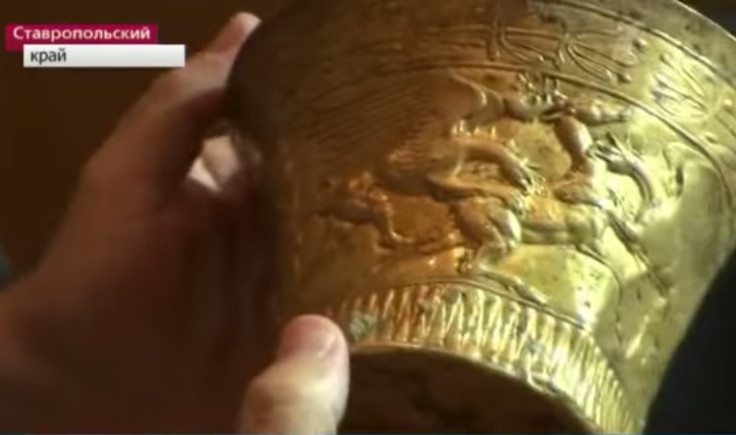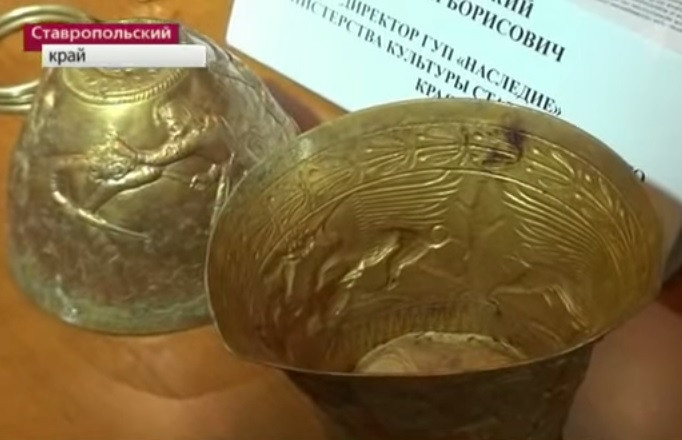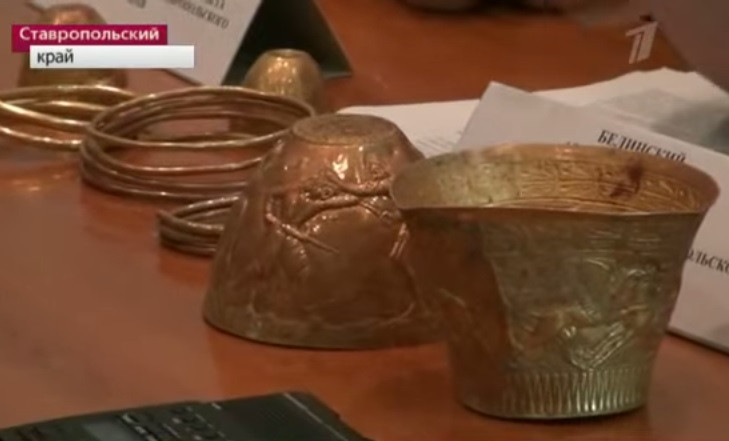Solid gold Scythian bongs for cannabis and opium discovered in Russia

Two solid gold bongs dating back 2,400 years, used by Scythian tribal chiefs to smoke cannabis and opium, have been discovered in Russia.
The two gold bongs were found along with a host of other artefacts by archaeologists working at a kurgan – a massive grave mound left by the civilisation.
Anton Gass, an archaeologist at the Prussian Cultural Heritage Foundation, told National Geographic that the find was a "once in a century discovery", adding the artefacts were "among the finest objects we know from the region".
The kurgan was first stumbled upon by archaeologists in 2013 when construction workers were clearing the land to put in a power line. The location has been kept secret to prevent looters from damaging the area.

Archaeologist Andrei Belinski, who began the excavation work, said he was not expecting to find much initially, but the team soon came across a thick layer of clay through which they found a chamber lined with broad flat stones and golden treasures.
There were two bucket-shaped gold vessels placed upside down containing gold cups, rings and a bracelet. In total, they weighed over three kilograms.
Scientists then analysed the black residue found inside the vessels and results showed traces of cannabis and opium – confirming a practice first reported by Greek historian Herodotus: "Scythians used a plant to produce smoke that no Grecian vapour-bath can surpass which made them shout aloud."

Further testing suggested that the vessels were used to brew and drink a strong opium drink, while burning cannabis nearby: "That both drugs were being used simultaneously is beyond doubt," Gass said.
The Scythians were nomadic people who migrated from central Asia to southern Russia and Eastern Europe to found a powerful empire across what is now Crimea. They were known for their skills in battle but suffered a major defeat in the fourth century BC and were eventually conquered by the Samaritans.
Speaking of the find, Belinski added: "It was definitely a surprise for us. We weren't expecting to find anything like this."
© Copyright IBTimes 2025. All rights reserved.






















